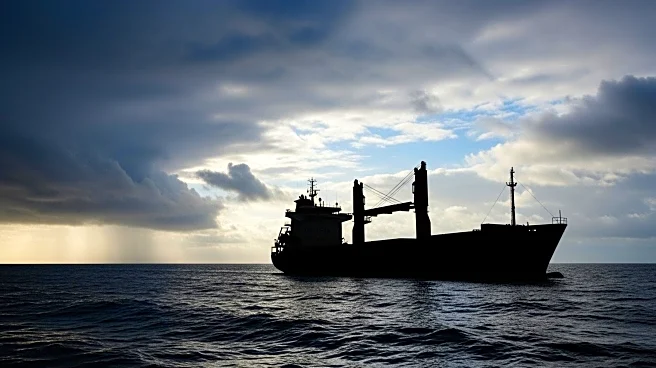What is the story about?
What's Happening?
The U.S. is approaching a deadline to impose port fees on vessels linked to China, a move that could cost the top 10 carriers $3.2 billion next year. This initiative, led by President Trump, aims to counter China's maritime dominance and support U.S. shipbuilding. The fees target ships built, owned, or operated by Chinese entities, with a flat fee of $80 per net tonnage per voyage. Non-Chinese operators of Chinese-built ships face higher fees, either $23 per net tonnage or $154 per 20-foot equivalent unit capacity, capped at five times a year. The U.S. Trade Representative has clarified that ship operators are responsible for determining fee applicability, and payments must be made through the Department of the Treasury's Pay.gov website. The fees have been adjusted following industry feedback, exempting many U.S.-based operators and extending timelines for LNG carriers.
Why It's Important?
The imposition of these fees represents a significant geopolitical maneuver by the U.S. to bolster its shipbuilding industry and challenge China's maritime influence. The financial impact on carriers, particularly Chinese carrier COSCO, could be substantial, with fees potentially reaching $1.53 billion next year. This move may alter fleet deployment strategies and provoke responses from affected nations, including China, which has pledged countermeasures against discriminatory practices. The situation underscores the ongoing trade tensions between the U.S. and China, with potential implications for global shipping routes and international trade dynamics.
What's Next?
President Trump and Chinese President Xi Jinping are expected to discuss these issues at the upcoming Asia-Pacific Economic Cooperation summit. The meeting could influence the future of these fees and broader trade relations. Additionally, the U.S. Congress is considering legislation to direct long-term funding to support U.S. shipbuilding, which may further impact the maritime industry. Stakeholders, including international carriers and governments, will likely continue to monitor developments closely, as the fees could reshape global shipping strategies and economic interactions.
Beyond the Headlines
The fees highlight broader ethical and legal considerations regarding international trade practices and protectionism. The U.S. move to impose fees on Chinese-built ships raises questions about fair competition and the balance between national interests and global trade norms. The situation may also prompt discussions on the sustainability and environmental impact of increased shipbuilding activities in the U.S. and China.















